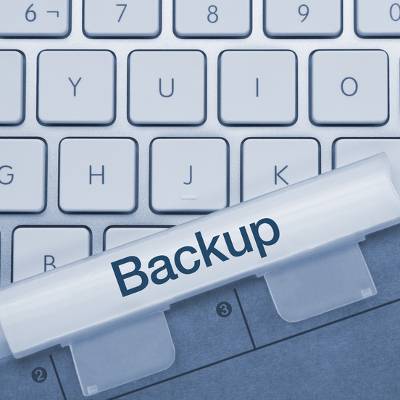Every business owner understands the importance of planning and the proper implementation of said plans. However, after everything is set up, it's easy to overlook the testing of one's plans, which can really come back to hurt you when all of your careful planning falls apart. Nowhere is this more true than with data recovery.
Network Synergy Blog
Network Synergy has been serving the Trumbull area since 1988, providing IT Support such as technical helpdesk support, computer support, and consulting to small and medium-sized businesses.
0 Comments
It's been said that a company's data is its most important resource. If this is true, then is it possible to assign a monetary value to your files? If you attempted to do so, you may come to the conclusion that your company's data is more valuable than anything else in your business, maybe even your own job!
Your mind is racing at a mile a minute, and you keep a to-do list for all of the things you are supposed to do. Unfortunately, that to-do list is often forgotten about. You save it as a .DOC text file on your computer, which has been making a strange clicking noise lately. But one day, the clicking sound gets worse, and worse, and worse, until your computer stops working completely. Just like that, all of your data is gone, and that's when it hits you.
Are you aware of the value of your company's data? If you lost it all today, what would it cost your business in terms of productivity, downtime, and liability? Security precautions need to be taken in order to keep your data safe, including data backups. However, after you have a backup system in place, don't neglect the need to secure those backup files!
It's good to backup your data, but can you have too much of a good thing? While this may be the case for several enjoyable activities like partying and buffets, this isn't the case with data backup. In fact, the more layers of data backup you have, the more secure you will be. How good is your data backup solution?
You may feel like your computer network is immune to data loss, but according to a study by Blackblaze.com, 46% of users experience data loss every year. Whether it's from something big like a natural disaster, or minor like improperly removing a flash drive, every form of data loss is costly and can be prevented with a data backup plan.
The importance of backing up your company's data cannot be stressed enough. Data is your business' most valuable asset, as evidenced by the fact that companies unable to access their data for ten days after a major disaster (like Hurricane Sandy that hit the mid atlantic and northeast U.S) will not survive the next fiscal year. Here's how to protect your business with data backup.
Remember when a family's home had only one phone line and someone else would pick up the phone in the middle of a call? There would be a click, a pause, the caller would then ask, "Is someone on the other line?" A hasty hang-up click would then follow. With VoIP, you can listen in on phone calls without being detected!
What would happen if your business experienced a disaster and your sensitive information was erased? If you don't have a business continuity plan in place that includes data backup and recovery, then it's highly unlikely your company will survive. To protect your business, you will want to consider and choose one of these three backup solutions.
In a recent survey of small businesses, only 13% of respondents believed themselves to be susceptible to a disaster resulting in data loss. That means 87% of small businesses must be located in a fortress where they are protected from every natural disaster--yeah right! No business is immune from disaster; therefore, every company needs a disaster plan.
You can take out an insurance policy on anything, even a wedding. Insurance company Fireman will protect your big day against "nonrefundable expenses, including cancellation due to serious illness, injury, extreme weather, a missing caterer or officiate -- even a bankrupt event facility." Your businesses technology is important enough to insure; is there a policy to protect your tech?
Every business needs to have a business continuity plan to keep operations going after experiencing a disaster. The centerpiece to every plan is having a backup and recovery solution in place for your company's data. If something happens to your data, your business may not recover. Here are four backup statistics that show the importance of backing up.
For those of us that have been able to witness the current technological revolution, we can say mankind has progressed at an exceptional rate. Remember spending hours on your TRS-80 writing code to play the simplest of games? At that point, if you didn't have the floppy disk drive, once you turned it off you had to spend all that time to rewrite the code. This period has taken us from bulky PCs (albeit still marvelous at the time) to devices with hundreds of times the computing power that fit in the palm of our hands.
When it comes to computer memory, redundancy is a good thing. The more places that you have your data backed up to, the better off you will be if something happens to your hard drive. RAID is a common hard drive formatting procedure that improves server performance and protects your data in the event of a crash.
Every business needs to backup their data. If your company is hit with a disaster, and there is no backup in place, then it will be a critical hit to your operation. Backing up data with tape is a widely used solution, and while this is better than nothing, it is very inefficient compared to using BDR.
One uncontrollable aspect in life is Mother Nature. There's no way you can stop a hurricane from ripping your roof off, but you can have an emergency plan in place for when/if it happens. People need to know what their responsibilities are and the action they need to take in those cases. How will your business continue operations in the event of a natural disaster?
While there are some startup businesses reading this that have not used anything older than Windows 7, there are other companies out there that are more seasoned and have been using their computer system for decades. Legacy companies like this may have found it difficult to open old files with newer systems; here's how to fix this using Microsoft Office.






















